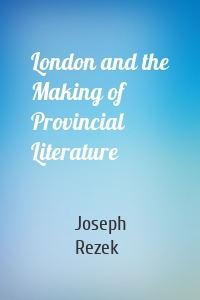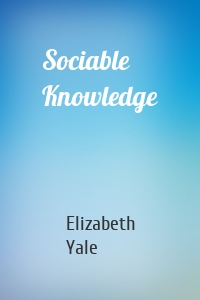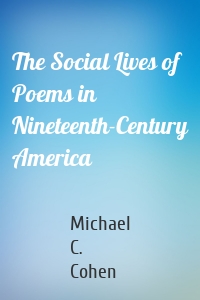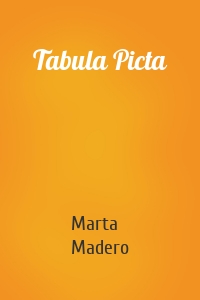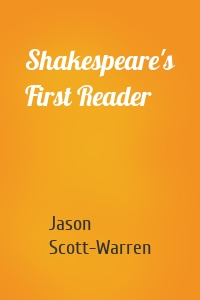Серия "Material Texts"
34 кн.Скачать лучшие книги серии Material Texts - автор David A. Brewer в формате fb2 или читать онлайн, бесплатно и без регистрации. Читаемые, полные версии книг, без сокращений - на сайте Knigism.online. Скачать книги полностью в количестве 34 шт.
London and the Making of Provincial...
In the early nineteenth century, London publishers dominated the transatlantic book trade. No one felt this more keenly than authors from Ireland, Scotland, and the United States who struggled to establish their own national literary traditions while publishing in the English metropolis. Authors such as Maria Edgeworth, Sydney Owenson, Walter Scott, Washington Irving, and James Fenimore Cooper devised a range of strategies to transcend the national rivalries of the literary field. By writing...
| Автор | Joseph Rezek |
The Nature of the Page
In The Nature of the Page , Joshua Calhoun tells the story of handmade paper in Renaissance England and beyond. For most of the history of printing, paper was made primarily from recycled rags, so this is a story about using old clothes to tell new stories, about plants used to make clothes, and about plants that frustrated papermakers' best attempts to replace scarce natural resources with abundant ones. Because plants, like humans, are susceptible to the ravages of time, it is also a...
| Автор | Joshua Calhoun |
Sociable Knowledge
Working with the technologies of pen and paper, scissors and glue, naturalists in early modern England, Scotland, and Wales wrote, revised, and recombined their words, sometimes over a period of many years, before fixing them in printed form. They built up their stocks of papers by sharing these materials through postal and less formal carrier services. They exchanged letters, loose notes, drawings and plans, commonplace books, as well as lengthy treatises, ever-expanding repositories for new...
| Автор | Elizabeth Yale |
Textual Situations
Generations of scholars have meditated upon the literary devices and cultural meanings of The Song of Roland . But according to Andrew Taylor not enough attention has been given to the physical context of the manuscript itself. The original copy of The Song of Roland is actually bound with a Latin translation of the Timaeus . Textual Situations looks at this bound volume along with two other similarly bound medieval volumes to explore the manuscripts and marginalia that have been cast...
| Автор | Andrew Taylor |
The Social Lives of Poems in Ninete...
Poetry occupied a complex position in the social life of nineteenth-century America. While some readers found in poems a resource for aesthetic pleasure and the enjoyment of linguistic complexity, many others turned to poems for spiritual and psychic wellbeing, adapted popular musical settings of poems to spread scandal and satire, or used poems as a medium for asserting personal and family memories as well as local and national affiliations. Poetry was not only read but memorized and quoted,...
| Автор | Michael C. Cohen |
Front Lines
In Front Lines , Miguel Martínez documents the literary practices of imperial Spain's common soldiers. Against all odds, these Spanish soldiers produced, distributed, and consumed a remarkably innovative set of works on war that have been almost completely neglected in literary and historical scholarship. The soldiers of Italian garrisons and North African presidios , on colonial American frontiers and in the traveling military camps of northern Europe read and wrote epic...
| Автор | Miguel Martinez |
Tabula Picta
To whom does a painted tablet—a tabula picta —belong? To the owner of the physical piece of wood on which an image is painted? Or to the person who made the painting on that piece of wood? By extension, one might ask, who is the owner of a text? Is it the person who has written the words, or the individual who possesses the piece of parchment or slab of stone on which those words are inscribed? In Tabula Picta Marta Madero turns to the extensive glosses and commentaries...
| Автор | Marta Madero |
The Art of Allusion
At the end of the fourteenth and into the first half of the fifteenth century Geoffrey Chaucer, John Gower, and John Lydgate translated and revised stories with long pedigrees in Latin, Italian, and French. Royals and gentry alike commissioned lavish manuscript copies of these works, copies whose images were integral to the rising prestige of English as a literary language. Yet despite the significance of these images, manuscript illuminators are seldom discussed in the major narratives of the...
| Автор | Sonja Drimmer |
Shakespeare's First Reader
Richard Stonley has all but vanished from history, but to his contemporaries he would have been an enviable figure. A clerk of the Exchequer for more than four decades under Mary Tudor and Elizabeth I, he rose from obscure origins to a life of opulence; his job, a secure bureaucratic post with a guaranteed income, was the kind of which many men dreamed. Vast sums of money passed through his hands, some of which he used to engage in moneylending and land speculation. He also bought books, lots of...
| Автор | Jason Scott-Warren |


